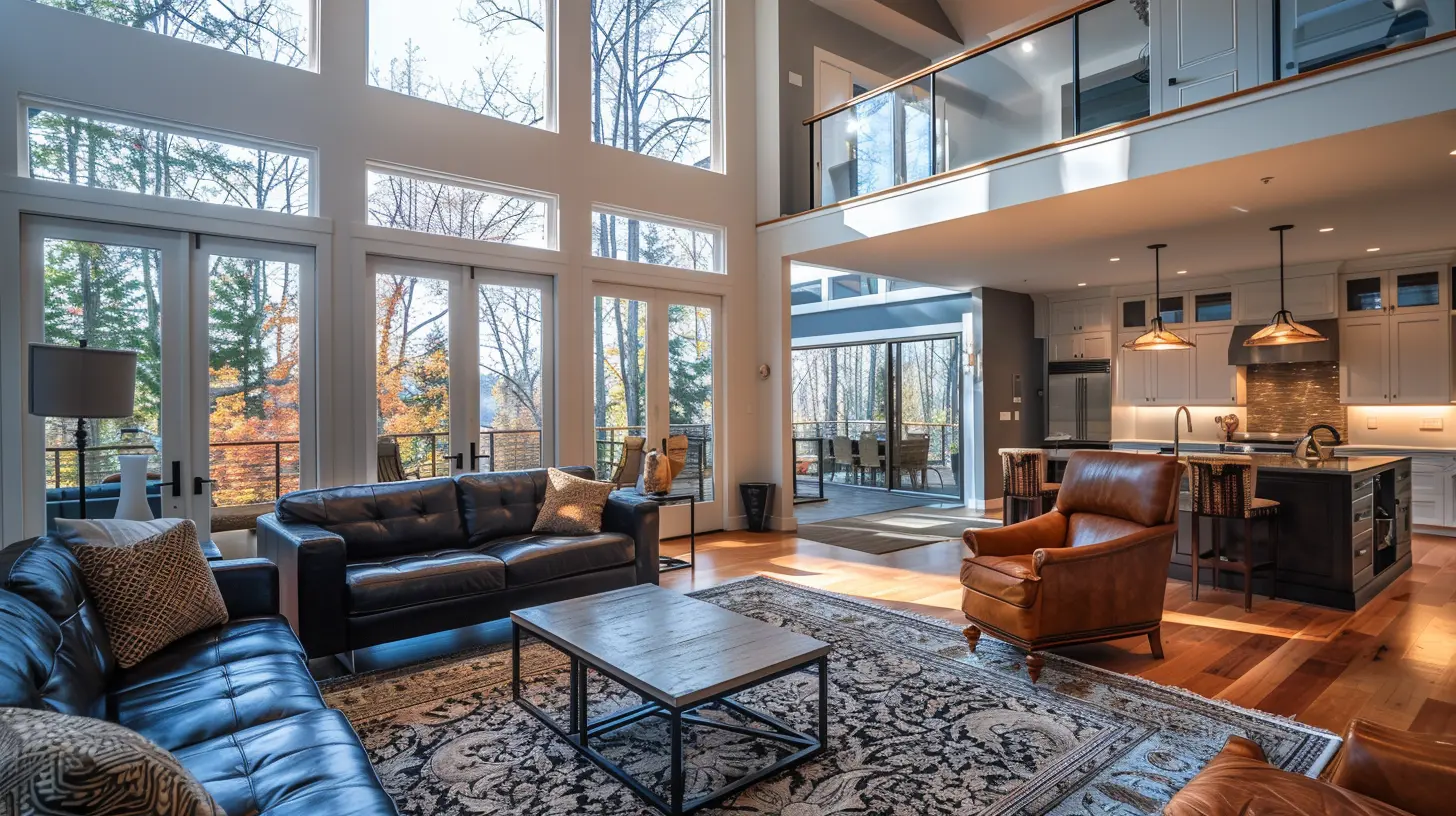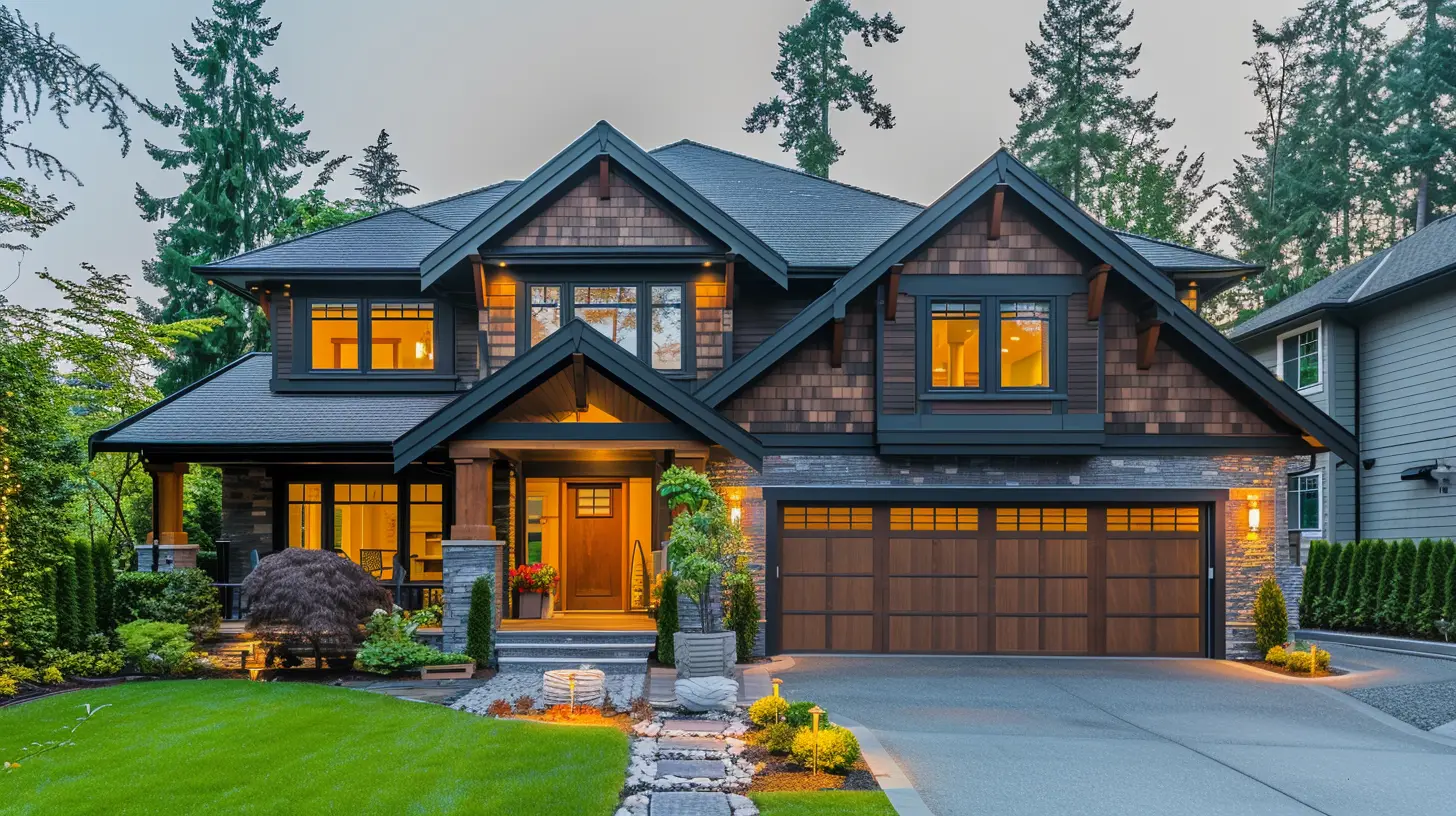How to Negotiate the Best Offer for Your Home
9 September 2025
Selling a house isn’t just about planting a “For Sale” sign on your lawn and waiting for the perfect buyer to show up with a wad of cash. Oh no—it’s a strategic game of chess. If you want to walk away with the best possible deal, you better know how to play those pieces right. Negotiation is where the real money is made (or lost) in real estate. So, buckle up—because I’m about to show you exactly how to negotiate the best offer for your home like a pro.
Why Negotiation Matters More Than You Think
Let’s be honest—most people don’t like the word “negotiation.” It sounds intense, maybe even a little shady, like you’re working a backroom deal. But in the world of real estate, it’s 100% essential—and totally legal (thankfully).Negotiation isn’t just about getting more money (although, yes, that’s the goal). It’s about terms. Closing dates. Repairs. Contingencies. You could accept an offer that looks great on paper, only for hidden contract clauses to drain the life—and funds—right out of it. That’s why negotiation is your secret weapon. Handle it right, and you’re cashing in big time.
Step 1: Know Your Home’s Value (Like, Really Know It)
Before you can even think about swinging any kind of deal, you need to know exactly what your home is worth. And no, I don’t mean what Zillow tells you or what your neighbor thinks it’s worth.Get a Comparative Market Analysis (CMA)
A real estate agent can hook you up with a solid CMA, which compares your home to recent sales in your area. This gives you a real-world snapshot of what buyers are paying for homes like yours right now.Understand the Market Conditions
Is it a buyer’s market or a seller’s market? This changes everything. If inventory is low and homes are flying off the shelf, you have an advantage. If there are more sellers than buyers, you’ll need to play your cards a bit more carefully.👉 Pro Tip: Overpricing your home might seem like a smart move to “leave room to negotiate,” but more often than not, it scares off serious buyers. Price it right from the get-go.
Step 2: First Offers are Just Openers, Not Final Scores
So you got an offer. Congrats! Pop the champagne—but don’t drink the whole bottle just yet.That first offer isn’t the endgame. It’s the opening line in a conversation. And if you play it smart, that conversation can end with a lot more money in your pocket.
Don’t Jump at the First Offer (Unless It’s Killer)
If your home’s only been on the market a few days and you get a full-price offer, that’s a strong sign of high demand. But if it’s a lowball offer, don’t panic. It’s not an insult—it’s just business. Stay cool.Instead of rejecting a low offer outright, counter it. Negotiation is like ping-pong—and you’ve gotta keep the ball in play if you want to win the game.
Step 3: Strike While the Iron’s Hot
Timing is everything.When your property first hits the market, that’s your “golden window.” This is when agents are booking showings, buyers are scrolling listings, and your home is a fresh new face in the crowd.
Use Urgency to Your Advantage
If you get multiple offers within that first week, use them to leverage higher bids. Let buyers know they’re not the only fish in the sea. A little competitive heat can drive the price up, fast.👉 Hot Tip: Tell buyers it’s a “highest and best offer” situation. That’s real estate lingo for “bring your A-game or go home.”
Step 4: Don’t Just Focus on the Price—Look at the Whole Package
Here’s the thing: the highest offer isn’t always the best offer. Sometimes a slightly lower bid with better terms can actually leave you better off.Look at These Key Terms:
- Financing terms: Is it a cash offer? FHA? Conventional loan? Cash is king because there’s less risk of the deal falling through.- Inspection contingencies: Some buyers want to inspect every nail in the house. Others are good to go. Fewer contingencies = smoother close.
- Closing timeline: Need to move fast? A buyer who can close quickly might be your best bet.
- Repairs and credits: Some buyers ask for a laundry list of repairs—or hefty credits at closing. That eats into your profits, fast.
Step 5: Master the Art of the Counteroffer
This is where things get juicy. You’ve got an offer… but it’s not quite right. Enter the counteroffer.Here’s how to craft a strong counter without scaring the buyer off:
Be Strategic, Not Emotional
Don’t take low offers personally. It’s not about your taste in wallpaper or that quirky pink kitchen backsplash you love—it’s business.Keep the Communication Open
Instead of going silent, keep the conversation going. You can counter on price, sure—but also on closing date, seller credits, and contingencies.Know When to Hold and When to Fold
If the buyer ghosts you after your counteroffer, so be it. That just wasn’t your buyer. Don’t be afraid to walk away from a bad deal. Better buyers are out there.Step 6: Use Your Agent Like the Negotiation Ninja They Are
Unless you’re selling “For Sale By Owner” (FSBO), your real estate agent should be your right-hand person throughout every step. These people negotiate deals for a living. Let them do what they do best.A seasoned agent knows when to push, when to hold back, and how to read between the lines on buyer offers. Their advice could mean tens of thousands more in your final sale price.
Step 7: Be Ready to Sweeten the Deal (If You Need To)
Sometimes, if you’re stuck between offers or trying to keep a buyer interested, you might need to throw a little sugar into the mix.What Can You Offer?
- Cover part of the buyer’s closing costs- Offer a home warranty
- Include appliances or furniture
- Agree to a quicker or more flexible close
These “extras” can be the cherry on top that seals the deal—without you needing to lower your price.
Step 8: Know Your Bottom Line (and Stick to It)
Before you enter any negotiation, you better know where your stop sign is. What’s your absolute minimum price? What terms are deal-breakers for you?If a buyer pushes below that line, walk away. It’s better to relist than to sign up for a deal that leaves you bitter (and broke).
Step 9: Leverage Psychology (Because Humans Are Weird)
Yep, negotiation involves numbers—but also psychology. Here’s how to tip the emotional scales in your favor:- Create a bidding war: Multiple offers can make a home feel more “desirable,” even if they’re not all higher.
- Stage your home: A well-staged home sells faster and for more. Buyers fall in love with aesthetics—they’ll justify a higher price if they’re already emotionally hooked.
- Move-in ready: A home that looks “turnkey” is a dream. If buyers think they won’t have to lift a finger, they’re less likely to haggle over price.
Step 10: Always, Always Get It in Writing
Verbal agreements mean nothing in real estate. NOTHING.Once you’ve agreed on an offer, make sure every last detail is documented in the purchase agreement. Price, contingencies, repairs, dates—lay it all out in black and white.
This avoids misunderstandings, saves you from legal headaches, and ensures everyone’s on the same page about what’s going down.
Final Thoughts: You’ve Got More Power Than You Think
Here’s the truth most sellers don’t hear: you’ve got the upper hand. If someone’s making an offer, it means they want your home. That’s powerful. Use it.Negotiating the best offer for your home isn’t about being pushy or greedy—it’s about being smart, strategic, and just a little bit bold. So stand your ground, use your brain (and your agent), and go get that deal you’ve earned.
You’re selling more than bricks and drywall. You’re selling value, potential, and someone else’s future.
Make them pay what it’s worth.
all images in this post were generated using AI tools
Category:
Home Selling TipsAuthor:

Cynthia Wilkins
Discussion
rate this article
1 comments
Noora McKellar
Great tips! It's crucial to understand market trends and set a competitive price. Don’t forget the power of staging and being flexible with showings. A skilled agent can also provide invaluable insights. Negotiating confidently can truly make a difference in closing the deal!
September 14, 2025 at 2:47 AM

Cynthia Wilkins
Thank you! I'm glad you found the tips helpful. You're absolutely right—market understanding, staging, and flexibility, along with a skilled agent, are key to successful negotiations!


